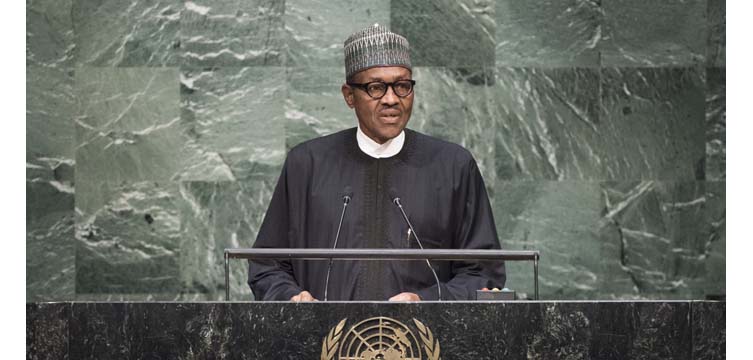Op-ed: Understanding the nexus between investment in healthcare and Nigeria’s economic development, By Adam Alqali
“If you invest in their health, education, and opportunities — the “human capital” we are talking about today—then they will lay the foundation for sustained prosperity. If you don’t, however, then it is very important to recognize that there will be a sharp limit on how much the country can grow,” observed Bill Gates, Co-Chair of the Bill & Melinda Gates Foundation while addressing the National Economic Council on Thursday, March 22 2018, at the Old Banquet Hall, State House, Abuja, Nigeria.

The above declaration evidently captures and underscores the nexus that exists between the quality of healthcare available and accessible to Nigerian citizens – which is a direct outcome of the degree of investment in public health by the government – and the country’s sustainable human capital and economic development.
In plain terms, the level of investment in public health by Nigeria, which is directly proportional to the quality of healthcare available to Nigerians, will determine the citizens’ productivity and consequently, the country’s human capital and economic development. Period!
However, the fact that governments (federal and states) in Nigeria are yet to come to terms with why health is a ‘priority of priorities’; one that forms the bedrock of society’s economic development is still our major predicament. Thus, the federal and various state governments must realize that, every dollar invested in the health of the people leads to increase in their productivity in the range of 20% to 30%.
Our governments have to also recognize the fact that investment in health is not just a social investment – it is an economic one! Hence, the more Nigeria invests in health, the less number of people that will fall sick and therefore be rendered unproductive. Also, the less number of children that will fall sick and develop brain disorders thus higher chances of achieving better learning outcomes and becoming productive adults capable of making meaningful contributions to the economic development of Nigeria.
Therefore, investment in public health will not only help the government save lives of Nigerians; instead, it will also boost their economic productivity and help them achieve social security. This means less out-of-pocket expenses for poor families thus reduced financial hardships and subsequently millions of Nigerians being lifted out of the cycle of poverty.
To achieve Universal Health Coverage (UHC), Nigeria needs at least 450 to 500 healthcare workers per 100,000 persons. However, at the moment, we don’t have even up to 50 healthcare workers per 100,000 persons which means Nigeria accounts for 80% of the Human Resource for Health (HRH) gap in Sub Saharan Africa; even though we are said to have graduated from being a low income to a medium income economy. What a paradox!
Furthermore, governments in Nigeria need to come to terms with the reality that access to quality healthcare services for Nigerians is but a basic human right, guaranteed by the 1999 constitution. And there is no way the country can achieve UHC without implementing the already existing health-related laws and policies such as the Abuja Declaration which stipulates that, at least, 15% of Nigeria’s annual budget be committed to the health sector.
There are equally other regional and global frameworks which Nigeria is signatory to, all of whom put the country under obligation to make more investments in its public health sector towards achieving UHC; they are the AU’s Africa Health Strategy (2016 -2030), the Maputo Plan of Action, Agenda 2063 as well as the UN’s Sustainable Development Goals (SDGs).
Also, the federal and respective state governments need to appreciate the fact that, beyond saving the lives of people, particularly women and children, making the appropriate investment across the health value chain offers tremendous opportunities for economic returns which are capable of lifting millions of Nigerians out of the cycle of poverty and spurring the country’s human capital and economic development.
For example, Nigerians spend as high as $1 billion annually on medical tourism, according to the Nigeria Sovereign Investment Authority. This presents a huge health sector investment opening for the government: If government – in partnership with private sector investors – will make the necessary investment in the form of state-of-the-art healthcare facilities they will not only be saving lives but also saving the country its precious foreign exchange.
Abundant economic investment opportunities also exist in the country’s pharmaceutical subsector since Nigeria also spends billions of dollars to import drugs and other medical consumables.
Indeed, no country which aspires for sustained human capital and economic development pays leap service to the health of its people. Doubtlessly, no country achieves economic prosperity without corresponding investment in public health. As they say: A healthy nation is a wealthy nation – and Nigeria cannot be an exception!
Adam Alqali is the editor of African Newspage; however, the views expressed in it are the author’s own and do not necessarily reflect African Newspage’s editorial policy.
Bibliography
https://openknowledge.worldbank.org/handle/10986/5976
https://www.weforum.org/agenda/2015/12/the-importance-of-investing-in-health/
https://blogs.unicef.org/blog/education-the-most-powerful-investment-in-our-future/
https://www.africannewspage.net/2016/10/editorial-healthy-nation-wealthy-nation/
https://www.vanguardngr.com/2014/05/nigerian-spends-1bn-annually-medical-tourism/












